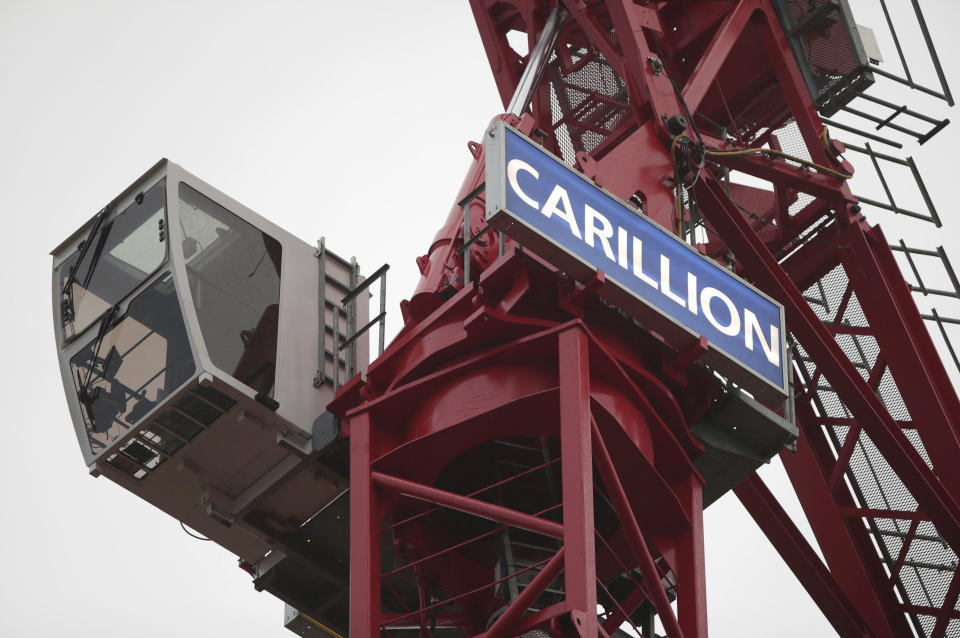Carillion creditors could get only 1p for every £1 owed

Carillion creditors could recoup just 1p in every £1 owed by the collapsed contracting giant.
Analysts say sales of asset will make little inroads into the £900m debt mountain built up by the company, which folded into liquidation on Monday.
Peter Kubik, a partner at accountancy firm UHY Hacker Young, said there was likely to be a “huge knock-on effect” among smaller firms that relied on Carillion cash, “especially as many creditors can expect to receive less than 1p for every £1 they are owed”.
MORE: ‘Worries’ over giant contractor Interserve in wake of Carillion collapse
He added: “The secured creditors, which are mostly banks, are owed roughly £900m and will get first bite of the company’s remaining assets as it gets liquidated.”
Some 30,000 smaller companies are connected to Carillion’s business in cleaning hospitals and prisons, providing school meals, working on major construction projects such as HS2 and maintaining homes for the military.
Many report they are owed hundreds of thousands for work undertaken over the last few weeks and months, with little hope of being paid. Some have already begun laying off workers or withdrawing staff from sites.
MORE: GKN rejects Melrose’s £8.5bn hostile bid
When a firm enters liquidation, creditors are paid according to a legal hierarchy with secured debts paid first.
Administrators will then pay out to senior creditors, followed by junior creditors, with shareholders at the bottom.
Carillion’s huge pension commitments – estimated to be about £600m – will also be a high priority.
It employs some 20,000 workers in the UK out of 43,000 globally.
Keith Cochrane, chief executive of the company since last July, said in statements filed at the High Court on Tuesday as part of the liquidation process that banks had hastened its demise.
He accused the Royal Bank of Scotland, one of Carillion’s lenders, of taking “unilateral action which in the company’s view undermined the group’s efforts to conserve cash”.
Cochrane said RBS told the company on Friday that it wanted Carillion to make supplier payments two days earlier than planned.
MORE: Carillion collapse: what it means for railways, schools and pensions
It has emerged Carillion had just £29m left in the bank as it folded, despite pleas to banks and the government for more time and money.
Union leaders have criticised the government for providing just 48 hours of financial assistance to those firms in the private sector that relied on Carillion.
GMB boss Tim Roache said the government had told employees that if another private sector company had not taken them on by then, “then here’s the Job Centre Plus address”.
He said: “That’s frankly scandalous.”

 Yahoo Finance
Yahoo Finance 
